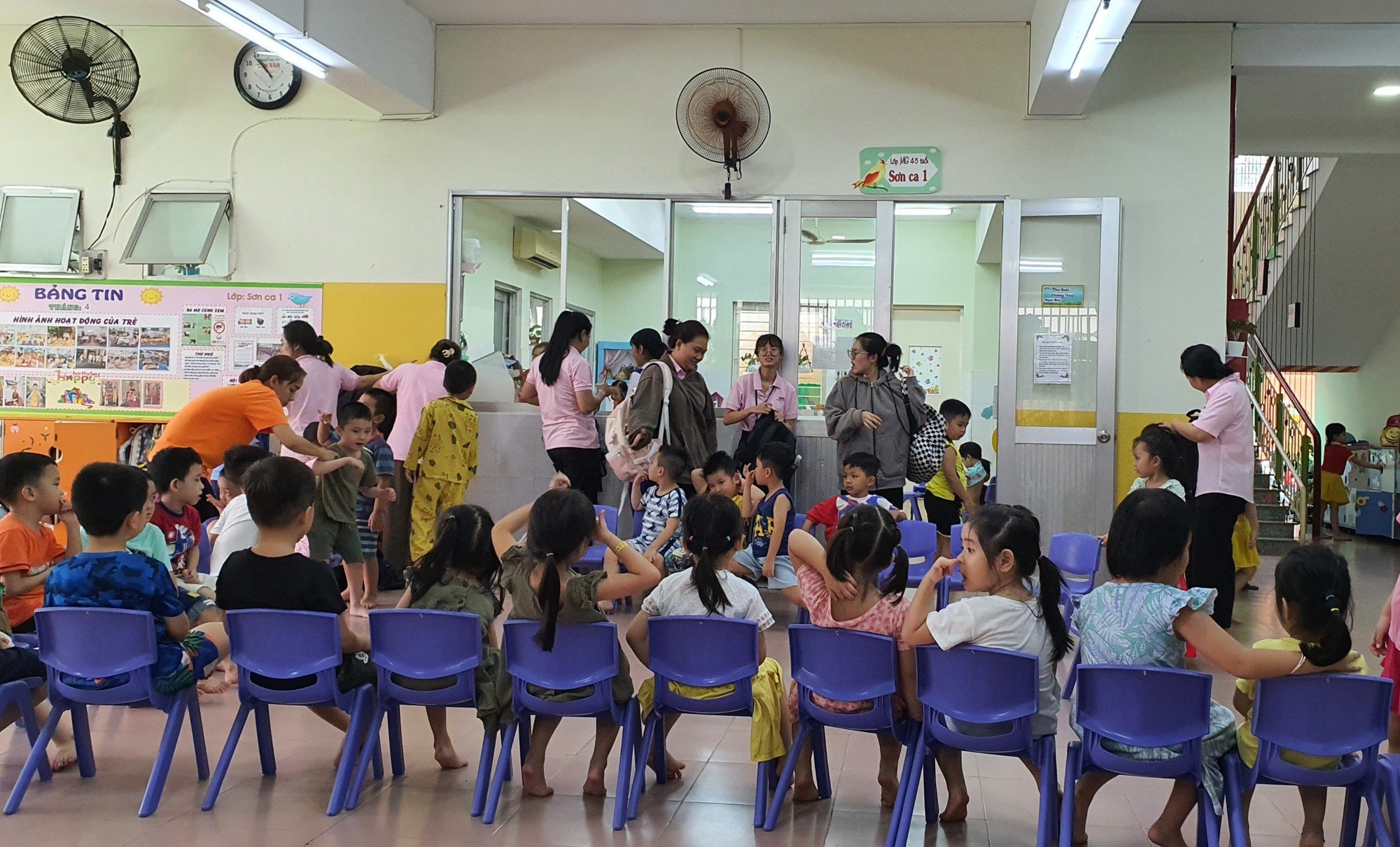
Kindergarten 6, District 3, Ho Chi Minh City, an inclusive school in Ho Chi Minh City
ILLUSTRATION PHOTO THUY HANG
That is a reality raised at the regular training session "Preschool skills education for children with disabilities to integrate into preschools", organized by the Preschool Education Department, Ho Chi Minh City Department of Education and Training on the morning of May 23 at the City Kindergarten, District 3.
"Some families are too protective of their children, or they worship them too much."
At the event, Ms. Nguyen Thi Doan Trang, specialist of the Preschool Education Department, Ho Chi Minh City Department of Education and Training, presented important points in pre-school skills education, that is, before officially entering grade 1, for children with disabilities who are integrated into the curriculum.
Ms. Doan Trang said that there are many factors from family, preschool and community that affect the development of independence and life skills for children with disabilities.
According to Ms. Doan Trang, in some families, disabled children are overprotected by all members, not allowing them to do anything; or they worship their children too much when they have some outstanding abilities such as speaking English well, or drawing well... Some families neglect and do not care for or educate their children. The most positive case is when parents treat their children properly, respect them, and care for and educate them properly.
In addition, community factors can include negative feedback about children; avoiding children's disabilities; seeing children as normal children, not paying enough attention or focusing too much on disabilities, and treating children inappropriately. All of these factors have negative effects on children with disabilities, Ms. Doan Trang shared.
So what should each preschool with children with disabilities studying in an integrated setting do? Ms. Doan Trang advises: "It is necessary to encourage positive feedback so that children with disabilities studying in an integrated setting can develop independence and form life skills. It is necessary to accept the special needs of children and respond to their special needs as a matter of course, to ensure that children receive appropriate support; create opportunities for children to learn from those around them."
"Many families are in very pitiful circumstances"
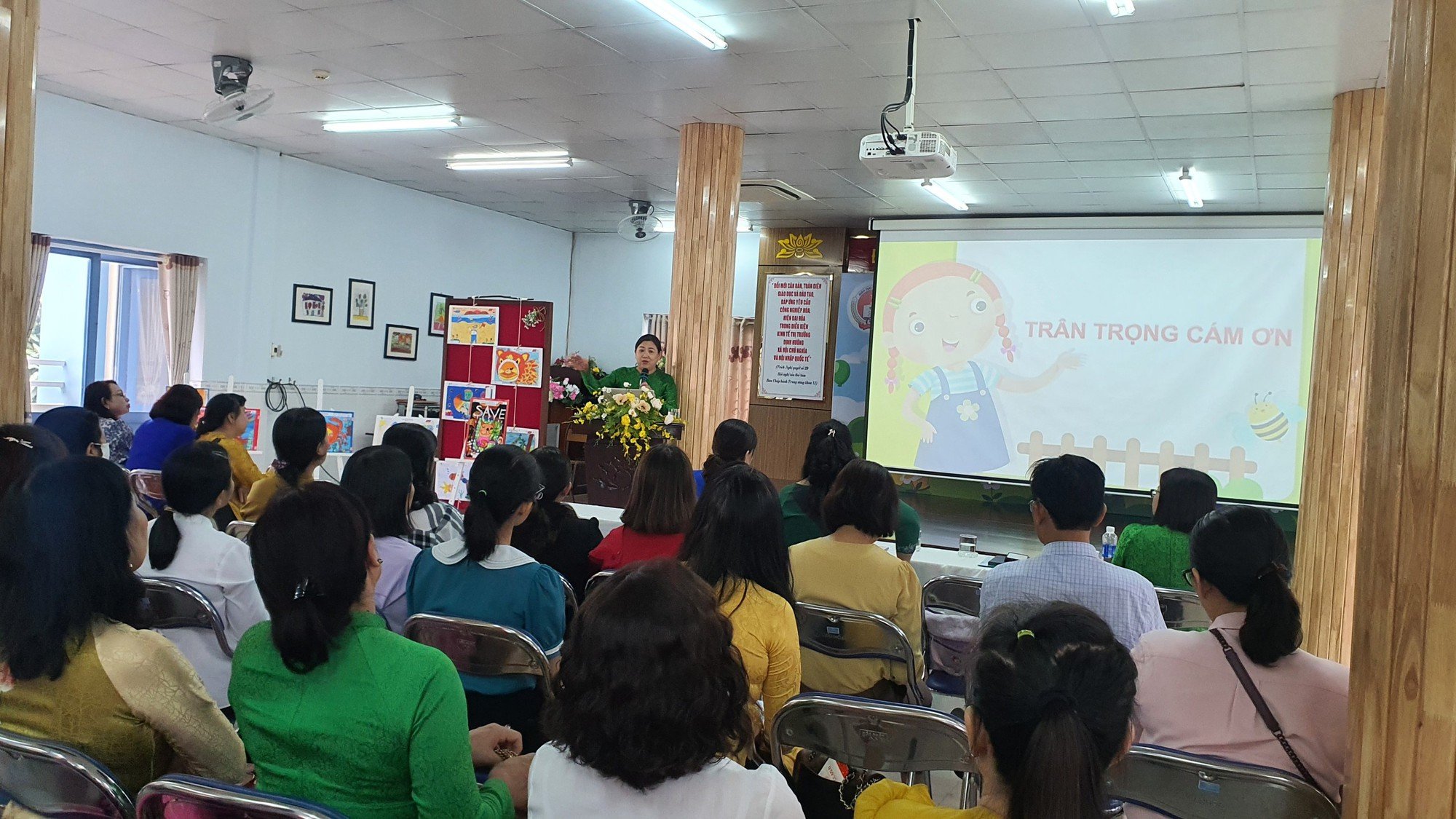
Many preschool teachers from districts, Thu Duc City (HCMC) attended the training session.
Ms. Luong Thi Hong Diep, Head of the Preschool Education Department, Ho Chi Minh City Department of Education and Training, shared with preschool teachers about the pitiful and pitiful situation of many families with disabled children. "For each family with a child with a disability, caring for and educating the child is very difficult. But for families with children with intellectual disabilities, caring for, raising and educating these children is many times more difficult," said Ms. Diep.
According to Ms. Diep, the program of integrated education and early intervention for preschool children with disabilities is a very humane program. Each preschool teacher should pay a little more attention to the children, interact with parents, and when observing children with any unusual problems, they need to discuss and immediately convince the parents to take their children to see a doctor and get checked for early intervention. The earlier the intervention, the more positive progress.
Ms. Nguyen Thi Doan Trang noted that when preschool teachers teach pre-school skills to children with disabilities who are studying for integration, they need to provide easy-to-understand, specific information that is appropriate to each child's individual characteristics, because no two children are the same.
In addition, teachers should help children develop from basic skills to solid skills; teaching new skills should encourage children to be proactive instead of imposing.
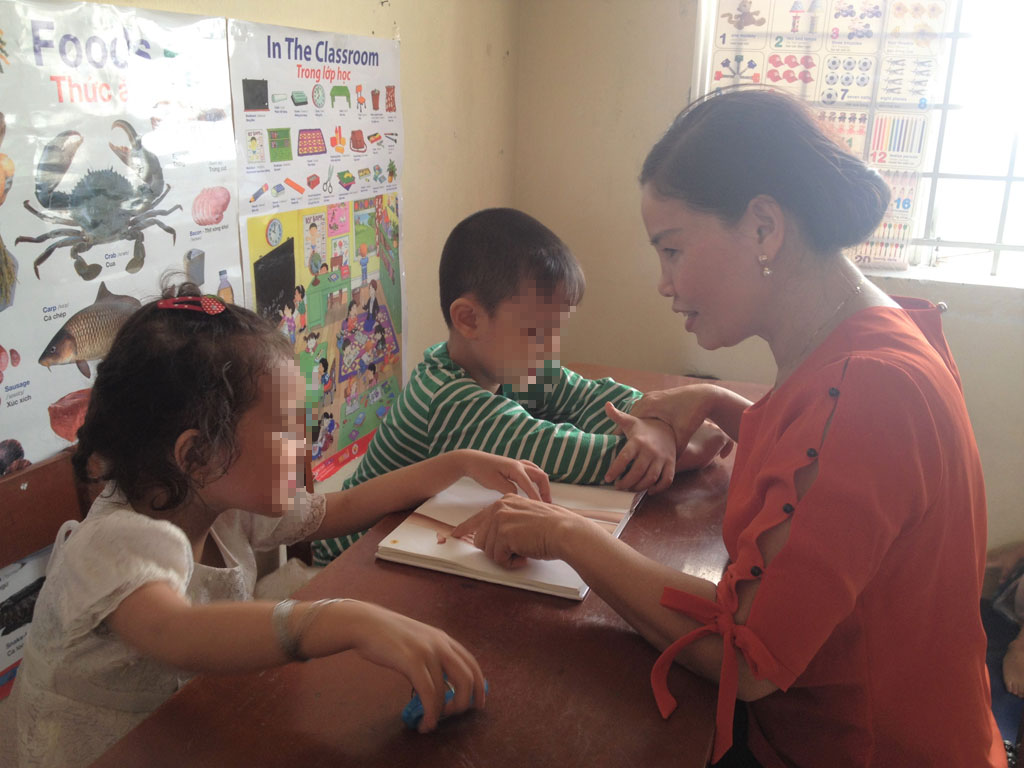
Teaching children to integrate requires understanding, patience, tolerance, and love.
Preschool teachers need to assign tasks that are appropriate for these children, investing in tasks that the children love. In particular, the combination of family, school, and community to care for children with disabilities is extremely important.
"I know that educating children with disabilities is very difficult, but there are families who do not accept their children's condition, making it even more difficult to educate them. Or from a community perspective, I have known parents who went to the ward to ask for a certificate of disability for their children, but someone in the ward said: what is the use of that paper, that paper will follow your child for the rest of his or her life," said Ms. Doan Trang.
However, according to Ms. Doan Trang, when children have a certificate of disability, they have more opportunities and society has better policies for them. This expert noted: "For a normal child, the cooperation of family, school, and community to educate the child is important, but for a disabled child, this is even more important."
Guide children from turning the pages of a book
What are the measures for pre-school skills education for children with disabilities at preschool age?
Ms. Nguyen Thi Doan Trang said that teachers need to equip children with self-service and learning management skills such as: preparing and managing learning materials; recognizing learning materials and preserving learning materials.
After that, teachers need to guide children to get used to the skills of holding a pen and turning the pages of a book. For children with disabilities, motor skills develop more slowly, so teachers first need to choose books with thick pages, hard enough for children to turn easily. Then, teachers switch to books with thin pages; creating the most comfortable space for children to read. Teachers read books to children, helping them get used to and comply with the rules of study discipline.
Next, teachers can introduce children to reading skills, introduce writing skills; train children to have oral communication skills, and behavior control skills.
Source link




![[Photo] Overcoming all difficulties, speeding up construction progress of Hoa Binh Hydropower Plant Expansion Project](https://vstatic.vietnam.vn/vietnam/resource/IMAGE/2025/4/12/bff04b551e98484c84d74c8faa3526e0)

![[Photo] Closing of the 11th Conference of the 13th Central Committee of the Communist Party of Vietnam](https://vstatic.vietnam.vn/vietnam/resource/IMAGE/2025/4/12/114b57fe6e9b4814a5ddfacf6dfe5b7f)

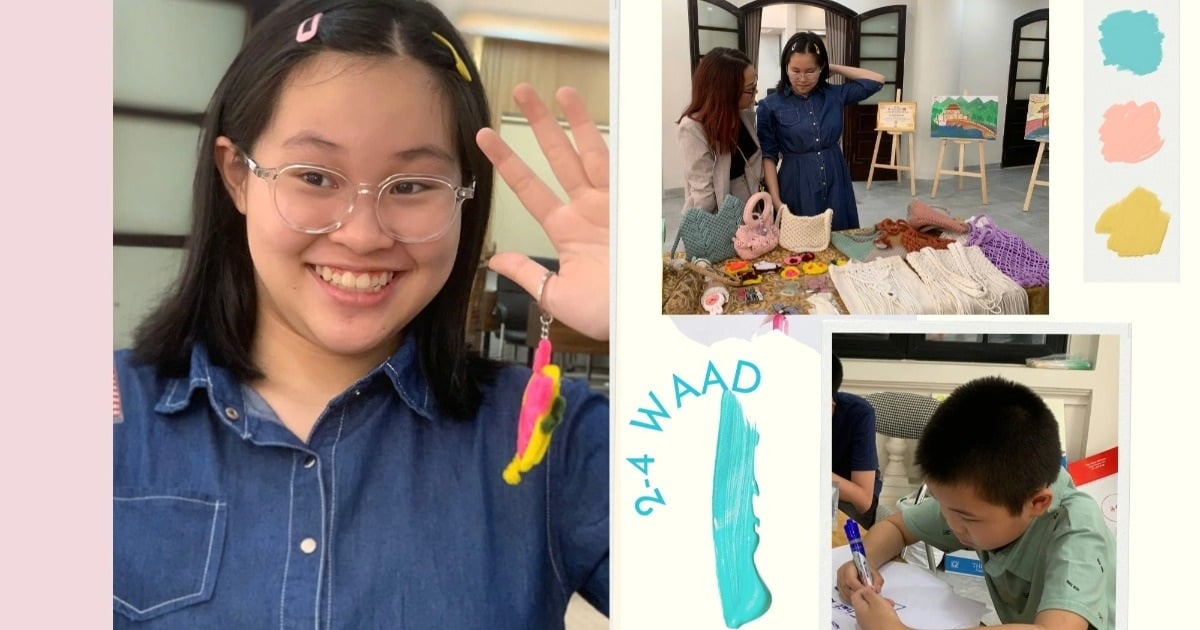

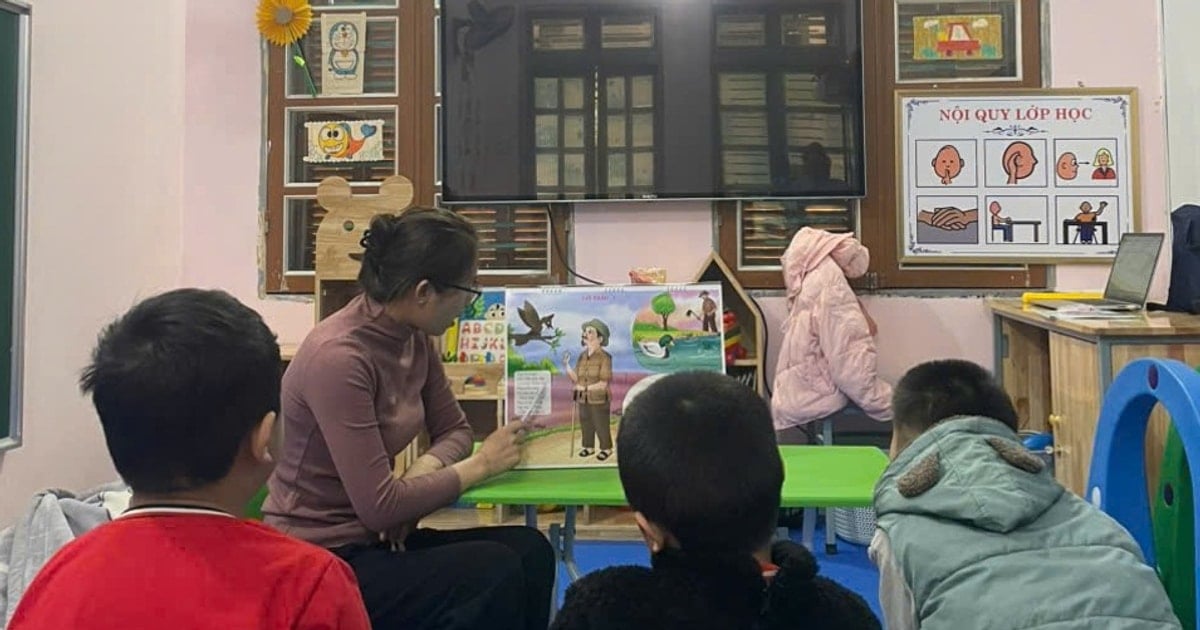


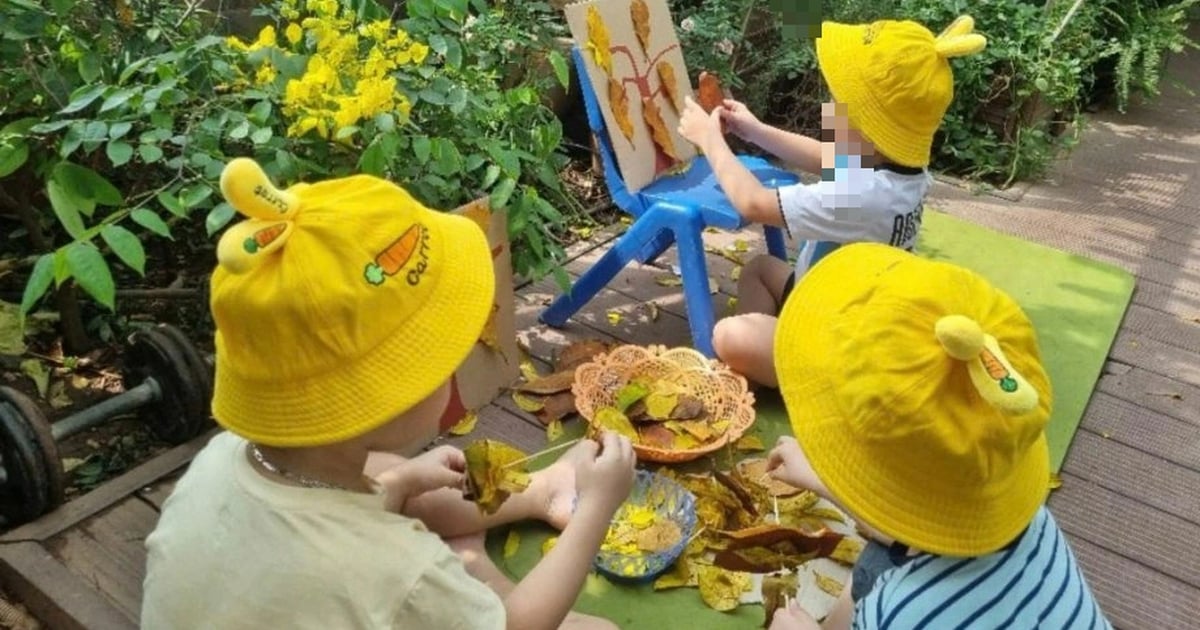
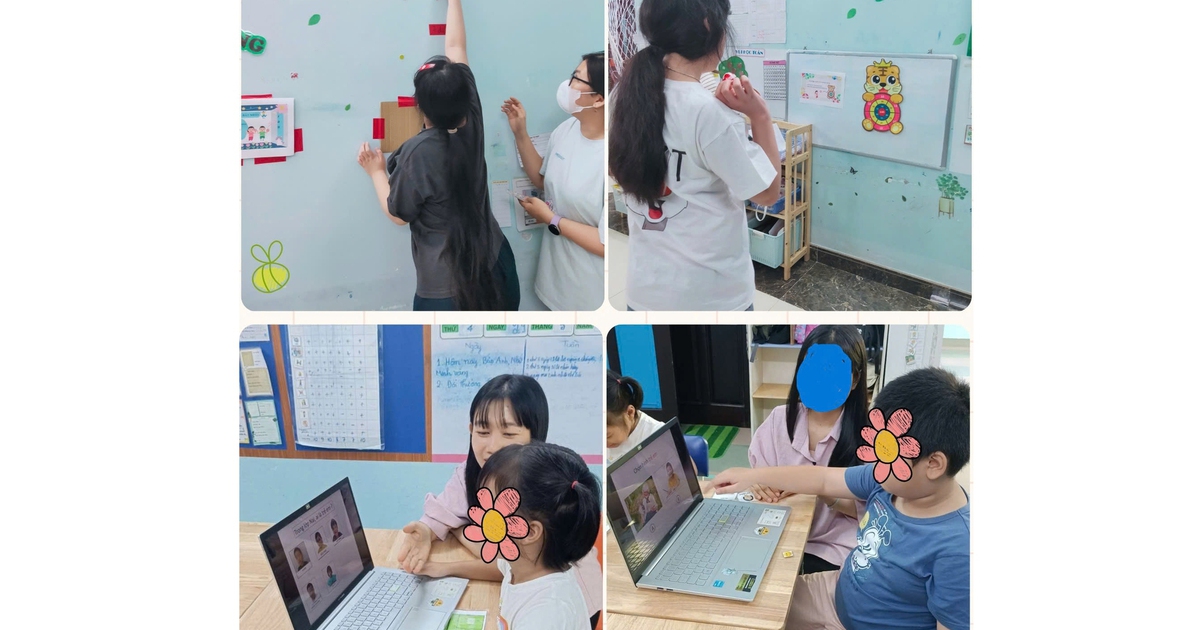
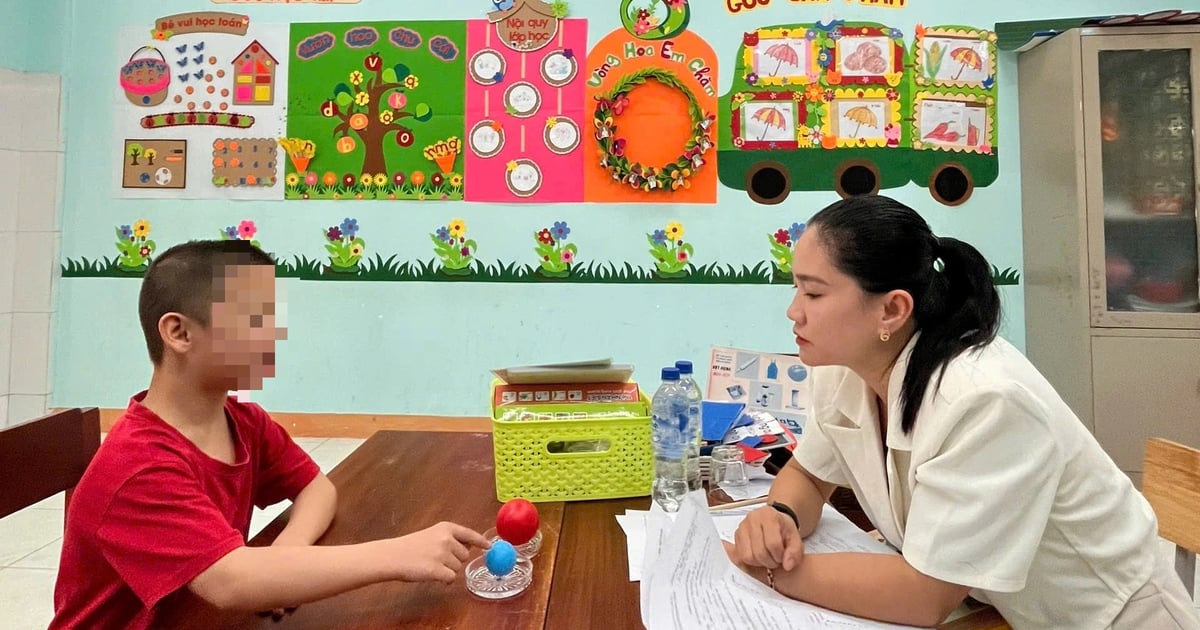
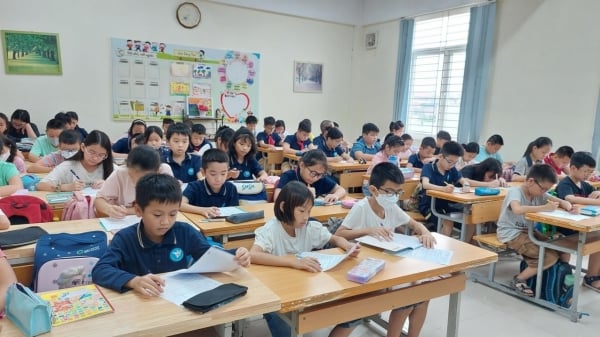













































































Comment (0)